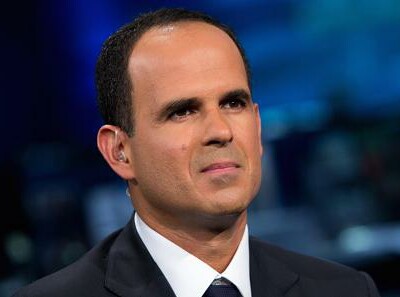The Media “Profit” -- Walter Sabo

CNBC’s series “The Profit” takes viewers into troubled businesses that require a fast turnaround. It stars Marcus Lemonis. Marcus is no nonsense: Let’s get to the problem and act on a solution in 22 minutes. He is a business triage expert. Because CNBC has to make good TV, the show tends to focus on businesses that produce a tangible product like ice cream or haircuts.
My wife recently said, “You’re like Marcus for media companies.” Annoyingly, she’s right. Since 1984 Sabo Media has grown media companies worldwide. Our client properties are family, privately or publically owned. Our team has assessed all forms of media including digital, radio, TV, online video and print with the objective of increasing share of audience.
When Marcus Lemonis visits a business, he immediately sees the problem and deploys solutions. The challenges he witnesses are consistent business to business.
The challenges I see are consistent media business to media business.
1. Paranoia.Thefear of being fired and of failure is acute in the media industry. Consolidation has resulted in thousands, yes thousands of jobs being eliminated. People are afraid, therefore not optimally productive. When working with clients, I quickly try to find ways to make the workplace a secure place. That includes establishing lists of easy to accomplish, short term tasks and public recognition for success. Personal accomplishment and pride of authorship is key to wiping fear from the workplace. “Team play” is fine in a stable environment but today’s economy does not foster a sense of safety. Finding ways for each employee to “own” a success is a powerful tool for re-establishing a positive company culture.
2. No Shared Vision. Employees want to keep their jobs so they want to keep their boss happy. The only way employees can keep their boss happy is if they know what she wants. The biggest time waster in business isn’t Facebook, it’s the lack of clear direction.
Perhaps the CEO has a very clear idea of what she wants. Then the issue becomes determining the most effective way to share her vision to generate profit. Often the CEO or the owner has too many conflicting visions and the result is confusion. Establishing and communicating one clear vision and setting goals for the company is the essence of efficiency.
3.False Economies. When I walk into a media company and am greeted by a wall telephone and vague instructions on how to get through the locked door, the management of the company is signaling that it doesn’t want new business. It’s that’s simple. A locked door and intercom phone is not an efficient greeting to clients, guest or employees. The first employee I seek when visiting a new business is a trained receptionist or office manager. If that person is in place, usually the business has very few problems.
Chasing the illusory goal of cost cutting, many executives and sellers are now required to fill out express mail forms, copy papers, change ink cartridges or get the mail. When executives are given clerical tasks in the name of efficiency the most dangerous dynamic begins: The executives begin to progressively believe they are doing something important when they change ink cartridges! Salesmen or executives changing ink cartridges make no money for the business.
At growth companies, executive talent spends all of their day seeking dollars, not doing the work of clerks. Revenue touch-points range from making sales calls to greeting clients to finding new selling strategies. Executives forced to spend their day explaining daily sales pacing reports or finding cheaper express mail options are mired in past events and wasting their time on mindless tasks. Those businesses decline and fail. Always.
4. Clear Responsibility.To quote from “Ghostbusters”: Never cross streams. Pat Norman was the Vice President in charge of KFRC Radio when it was a dominant Top 40 station in San Francisco. In 60 seconds I witnessed why the station was successful. The Sales Manager came into his office and had thoughts about programming. Pat’s calm, respectful response: “That’s Jerry’s job.” (Jerry was the program director.)
That was it. That was the end of the conversation. Brilliant.
5. Bad Product. Of course a bad product will cause the business to fail. The fix is a strong management team of product people and people who celebrate great product. Lee Iaccoca will tell you that he was a successful car executive because he was a “car guy.” He loved cars. (He's going strong at 90 years of age.) Fred Silverman, the greatest television programmer in history -- he programmed NBC, CBS and ABC -- really loves television.
6. Unpleasant People.Economic hard times result in fear and nastiness. “Please” and “Thank you” are cost effective ways to motivate coworkers. When employees are afraid for their jobs, stretched to fill the work of a now smaller staff combined with new marketplace dynamics, a barking manager won’t get the desired results.
To be fair, there are two differences between me and Marcus Lemonis: He invests in the businesses and I cannot. (The FCC has thoughts about that.) And he drives a free Jaguar thanks to the magic of product placement. I drive a Dodge minivan thanks to the magic of parenthood.
Walter Sabo is the Chairman of Sabo Media, a company that offers executive-on-demand services. He has worked on-site to build out new digital content platforms such as Sirius/XM. His team was the first to discover the marketing clout of web stars, Internet organic video producers. They founded OMMA award winning HITVIEWS. The company placed brands such as CBS, TiVo and Mountain Dew inside UGC. In FM broadcasting he is a leader in the profitable sector of FM Talk and held executive positions at NBC and ABC Radio. He can be reached at walter@sabomedia.com.
He has worked on-site to build out new digital content platforms such as Sirius/XM. His team was the first to discover the marketing clout of web stars, Internet organic video producers. They founded OMMA award winning HITVIEWS. The company placed brands such as CBS, TiVo and Mountain Dew inside UGC. In FM broadcasting he is a leader in the profitable sector of FM Talk and held executive positions at NBC and ABC Radio. He can be reached at walter@sabomedia.com.
Read all Walter's MediaBizBloggers commentaries at Sabo Strategies.
Check us out on Facebook at MediaBizBloggers.com
Follow our Twitter updates at @MediaBizBlogger
The opinions and points of view expressed in this commentary are exclusively the views of the author and do not necessarily represent the views of MediaBizBloggers.com management or associated bloggers. MediaBizBloggers is an open thought leadership platform and readers may share their comments and opinions in response to all commentaries.


